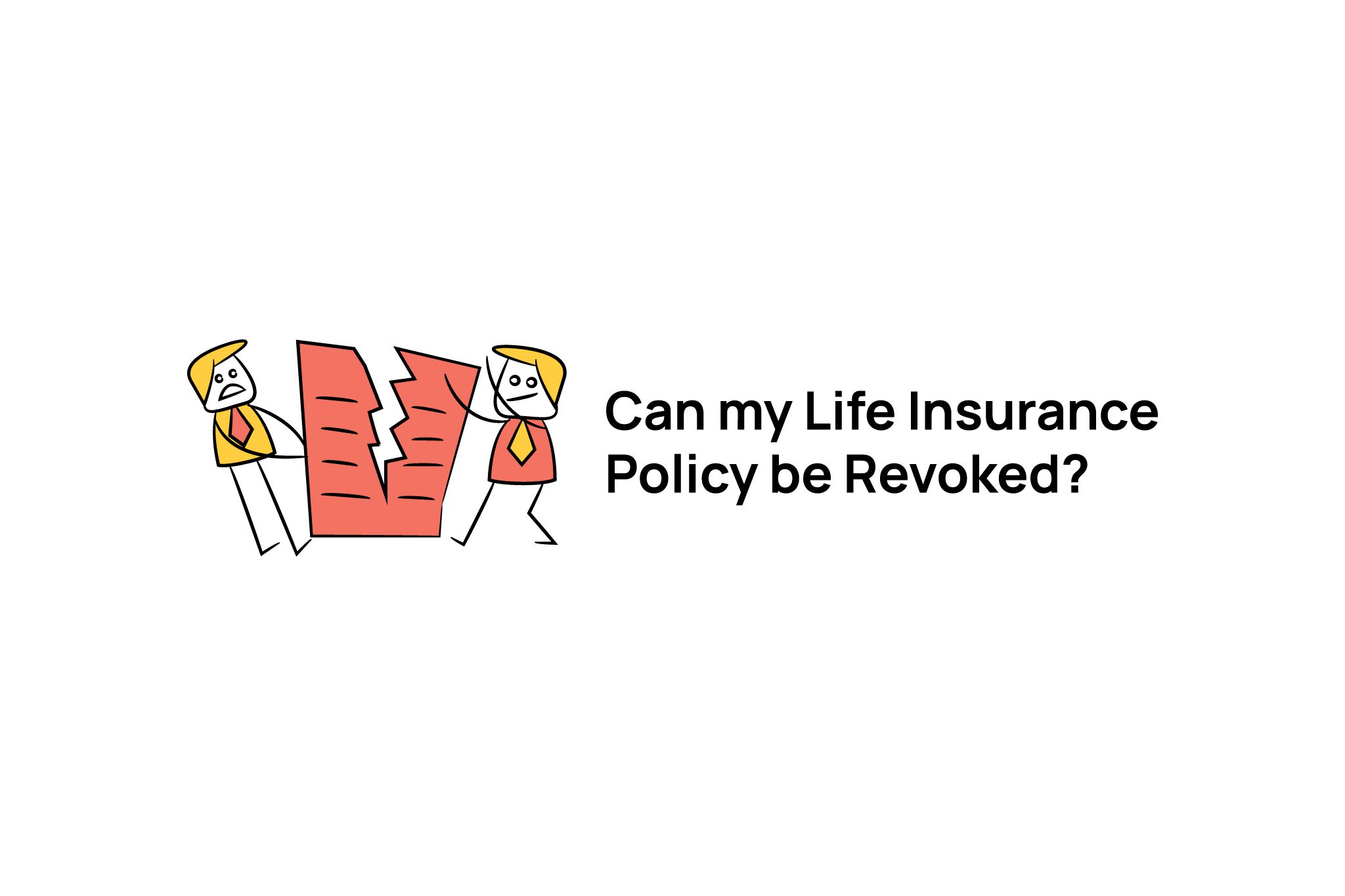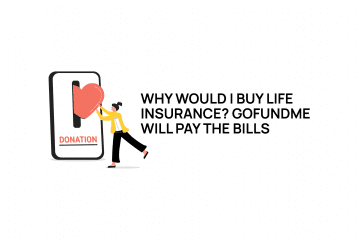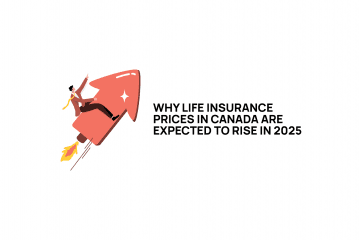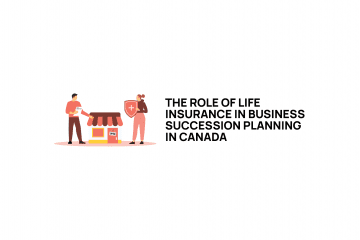We often get asked, “can my life insurance policy be revoked?”. A life insurance policy, at its core, is a one-way contract. When you make the application to the insurer, they have the opportunity to underwrite the application. They ask health and lifestyle questions, and they can request information from your doctor, check your driving record, etc., to help them decide if they are willing to take on the risk of the policy. Once they agree to accept the application, the control swings to the policy owner’s court. If you pay the premiums for the policy, the insurer cannot change the terms of the contract. This is the one-way nature of the policy. The insurer can’t cancel the policy in five years if you get sick because the risk to them has changed. The only way that the terms of the policy change are the owner asks for that to happen. There are examples of situations when the insurer can revoke a policy, though. Let’s take a look at what happens and how it occurs. First, a couple of key things to understand.
In This Article:
- The Medical Information Bureau
- The Contestable Period
- What Can Result in my Life Insurance Being Revoked
- Conclusion: Can my Life Insurance Policy be Revoked
The Medical Information Bureau
The Medical Information Bureau is also known as the MIB. If you are of a certain vintage right at this very moment, you have Will Smith singing in your head, ‘Here come the men in black, it’s the M-I-B’s…’ (if that wasn’t enough to get the earworm for you follow the link: https://www.youtube.com/watch?v=fiBLgEx6svA). Understand that for almost two decades, this song has run through my head when I tell people about the MIB and what it is and is not. It is not a group of people in black suits and RayBan sunglasses that regulate the aliens visiting Earth. It is a database established in the early 1900s that works with insurance companies. If you have applied for individual life or health insurance, the answers you made on that application are stored in the MIB. When you apply for coverage in the future, those answers also get recorded by the MIB. If there are any discrepancies, the MIB notifies the insurer.
Get a free quote
The Contestable Period
Life insurance policies in Canada have a window at the beginning of the policy that lasts for 2-3 years, called the contestability period. What this means is that during the first few years of the policy, if the insurer finds out about an unintentional misrepresentation of fact that they can modify or revoke a policy (depending on what the fact was). This is the first time I’ve mentioned it, so I will highlight the word unintentional. You can’t intentionally mislead an insurance company on an application. That is fraud, and it will always void the contract. Instead, if you made a legitimately unintentional misstatement of facts, the insurer has 2-3 years (depending on policy wording) during which, if it is discovered, they can address it. After that, they are no longer able to change the policy based on the misstated information.
What Can Result in my Life Insurance Being Revoked
Now that we understand the MIB and that there is a contestable period, let’s examine how an insurer could revoke your life insurance policy.
- Premium Payments – This is the easiest reason for the cancellation of a life insurance policy. If you don’t pay the premiums when they are due, the insurer can cancel the contract. It doesn’t matter if the missed premium was intentional or not. What you do need to know is that there is a 30-day grace period for a missed premium and a 90-day reinstatement window. Thirty days after the premium is missed, the policy is classified as lapsed. During the first 90 days after a missed premium payment, you can apply to have the policy reinstated without needing to provide medical evidence of insurability. After 90 days are up, you may be required to provide that you are still healthy before the policy is reinstated.
- Smoker Status – I am highlighting this as a separate entry, but it is part of a constant theme. You cannot lie on your insurance application. Intentionally misleading the insurer is fraud. Committing fraud on your application voids the contract. More on that in the next point. For a smoker who says that they do not smoke, your policy will be voided if this comes to light. In years gone by, the insurer may have looked at the policy and recalculated things, basically figuring out what the death benefit would have been for the premiums you paid if they knew you were a smoker. Not anymore; now the policy is cancelled if they discover you lied about being a smoker. Because of this, it is essential that you understand what classifies you as a smoker in the eyes of the insurer you are applying for coverage with to make sure you answer this properly. If you smoke an occasional cigar, you may still fall into the smoker classification; if you use cannabis, you may be a smoker as well. Ask the interviewer for clarification to make sure that you answer this question properly.
- Intentionally Mislead the Insurer – This is the catchall. Don’t commit fraud on the application. You need to tell the truth during the application process because if the insurer decides to issue coverage based on the information you provide and finds out that you were intentionally not being truthful, they are able to cancel the policy. This doesn’t matter if it is during the contestable period or not. It can also be discovered at the time that there is a death claim being filed. If you didn’t disclose something or omitted something on purpose, the policy can be revoked. If this is discovered at the time of claim, the death benefit will not pay out to the beneficiaries. As an example, remember that MIB database I mentioned earlier? I have seen it in action. A policy that had been in place for almost 12 years was cancelled when a new application for insurance was made. One of the questions on the new application contradicted the answer that had been given for the in-force policy. A part of the question was when the event happened, and the date given on the new application preceded the issue date of the in-force policy. The company that had issued the policy a dozen years ago was informed of the discrepancy and deemed it to be serious enough that a fraudulent application had been the basis of their decision. The owner received a letter cancelling their policy and a cheque refunding them for the premiums that had been paid.

Conclusion: Can my Life Insurance Policy be Revoked
The answer for most people to whether their life insurance policy can be revoked by the insurance company is no. It is my experience that people are typically honest and forthcoming with the answers they provide on their insurance questionnaires. The reason is that they generally understand that the reason that they are taking out the policy is to provide support for their loved ones financially if something happens to them unexpectedly. It is also my experience that insurance companies are not looking for ways to revoke contracts to avoid paying out death benefits. This is all a good-faith transaction, but it must be based on both parties providing truthful information. If you know (or suspect that) something is wrong with your health, and you choose to mislead an insurance company by not disclosing it, this creates an unfair situation to your advantage. Again, going back to an example, you can’t call up a company that provides fire insurance for your house and tell them that you want a policy right away but not tell them that the kitchen is currently engulfed in flames. That is information that they would want to have before they make their decision. The same thing applies to life insurance. Disclose your current situation truthfully, and the insurer will make a decision that both parties can be comfortable with in their knowledge that the benefit will be paid if the worst-case scenario happens.




